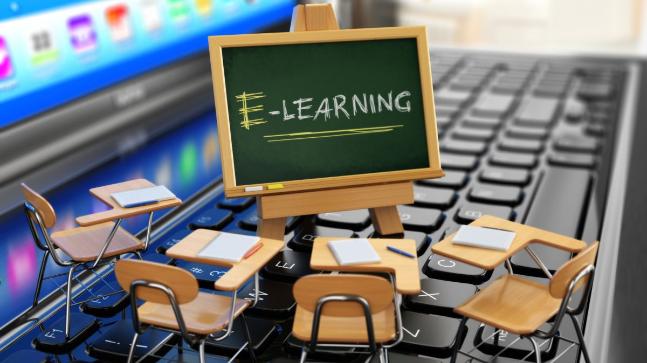In the digital era, there have been tremendous environmental changes in all aspects of life. In an instant, this digitalization can even penetrate into very private rooms. Likewise in the world of education, digitalization cannot be avoided in the teaching and learning process, including how to connect, communication between one another has undergone significant changes. Scientists and practitioners must understand how to manage this dynamic change (Bates, 2015; Nambisan et al., 2017). On the other hand, there is also a change in the setting of the place of learning from face-to-face in conventional classrooms to virtual meetings in online learning classes. The online learning model continues to gain popularity in higher education as many universities try to facilitate modern and flexible education for students, and to create interactive digital learning found in virtual class which is interesting and effective in undergraduate and postgraduate education (Mery & Newby, 2014).
It is interesting to know about formal digital literacy in open education issues. However, it is constrained by the number of literatures that are still lacking, moreover, the publications related to this topic are limited, therefore, this paper uses a descriptive approach through literary studies. This is a type of literature describing article obtained from relevant scientific articles obtained from internet search engine : proquest, researchgate, google scholar and other search engines with “digital literacy” keyword to find publications related and relevant to the research topic. In the process of searching, 41 related articles were obtained; all of these articles are listed in the references. Then a research mapping was designed, then studied further. Some of the dominant research include two papers from the journal of educational dynamics (Kardiyem et al., 2019, Sriyono et al., 2019) and then the material is presented and explained in the author’s perspective and words.
Looking at the phenomenon of digital social networking in the last decade which mostly refers to internet-based services such as Facebook, Instagram and Twitter. They are platforms that are often used by the public, and it might be interesting to study the subvariable relations related to social media which are included in the concept of extensive digital literacy and its relationship with the academic performance of online learning. Beyond the main objective of bringing entertainment to the public, it turns out that active social media can influence learning in new ways that were previously unthinkable.
Students as an educated people are mandated as the nation’s next generation. Students have the responsibility to continue and replace the previous generation to advance the nation even greater. Students will be able to carry this responsibility when they always practice critical thinking on campus, including having ability in digital literacy. Critical thinking skills will be needed when students are in the community to solve existing problems. Students are expected to be able to implement the theories they get on campus to real problems that occur in society (Kardiyem et al., 2019).
Authors: Gaung Perwira Yustika, Sri Iswati
Journal link related to the article above: https://journal.unnes.ac.id/nju/index.php/DP/article/view/23779





